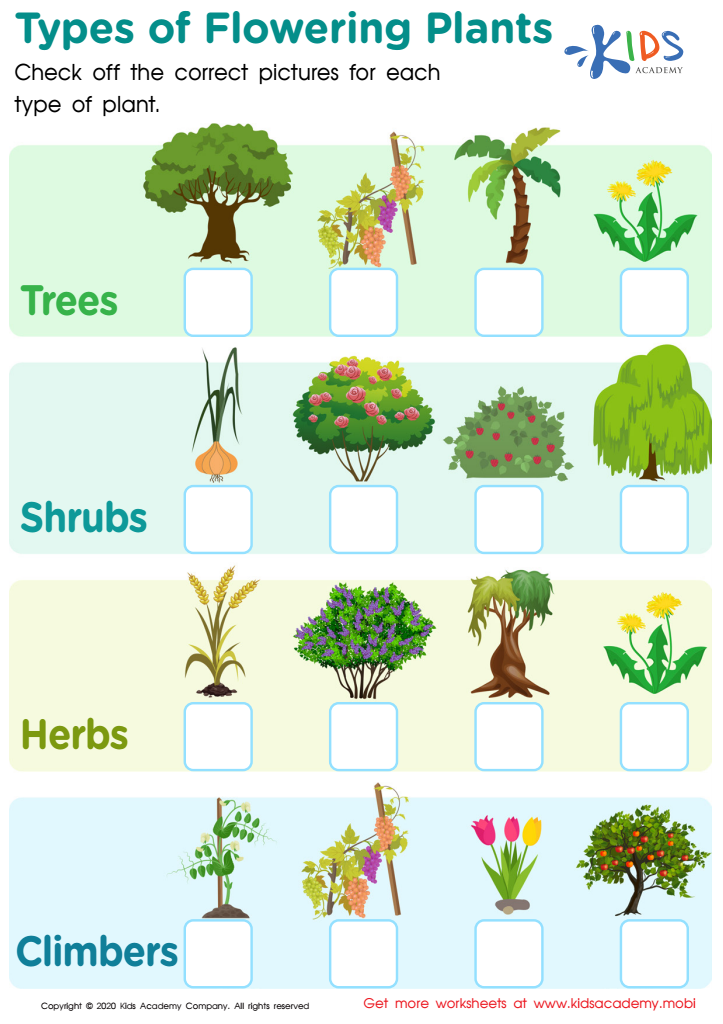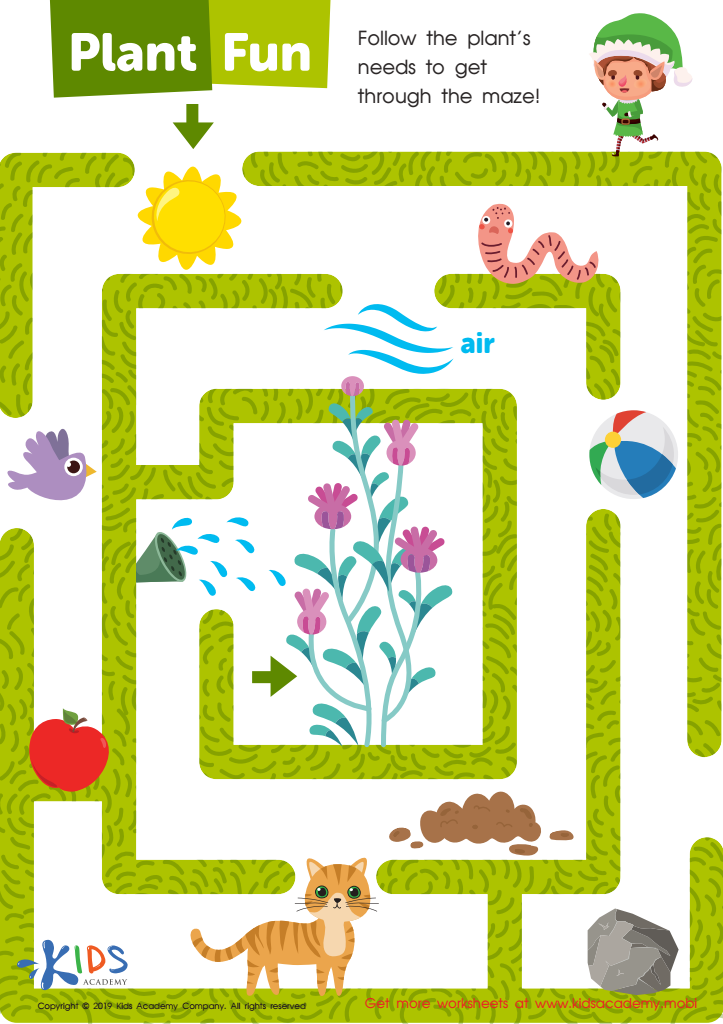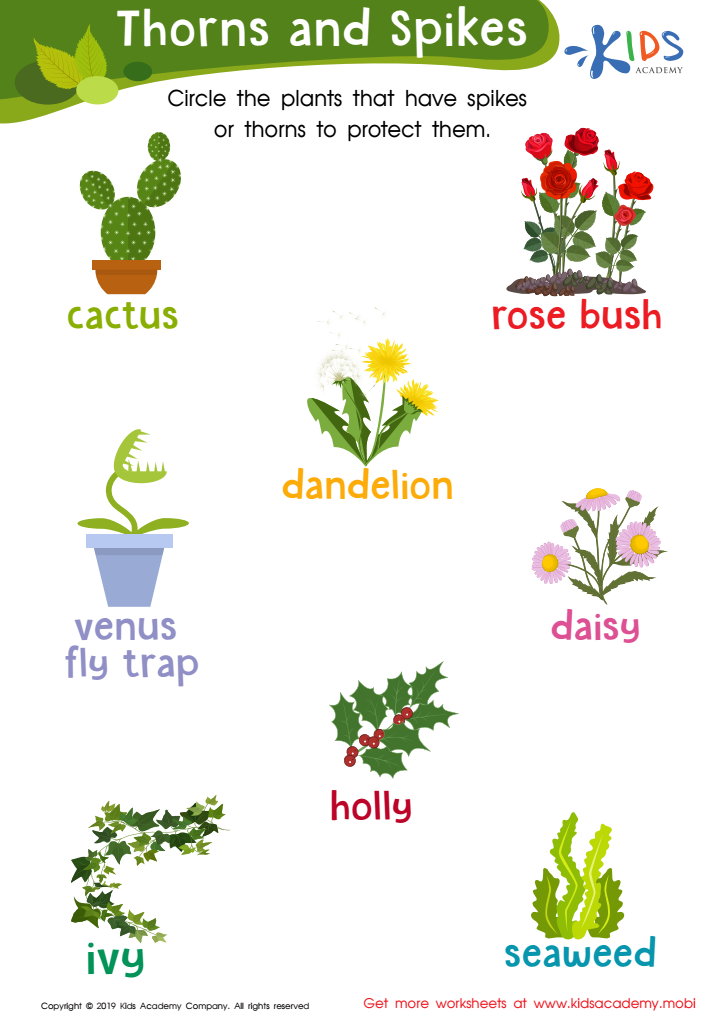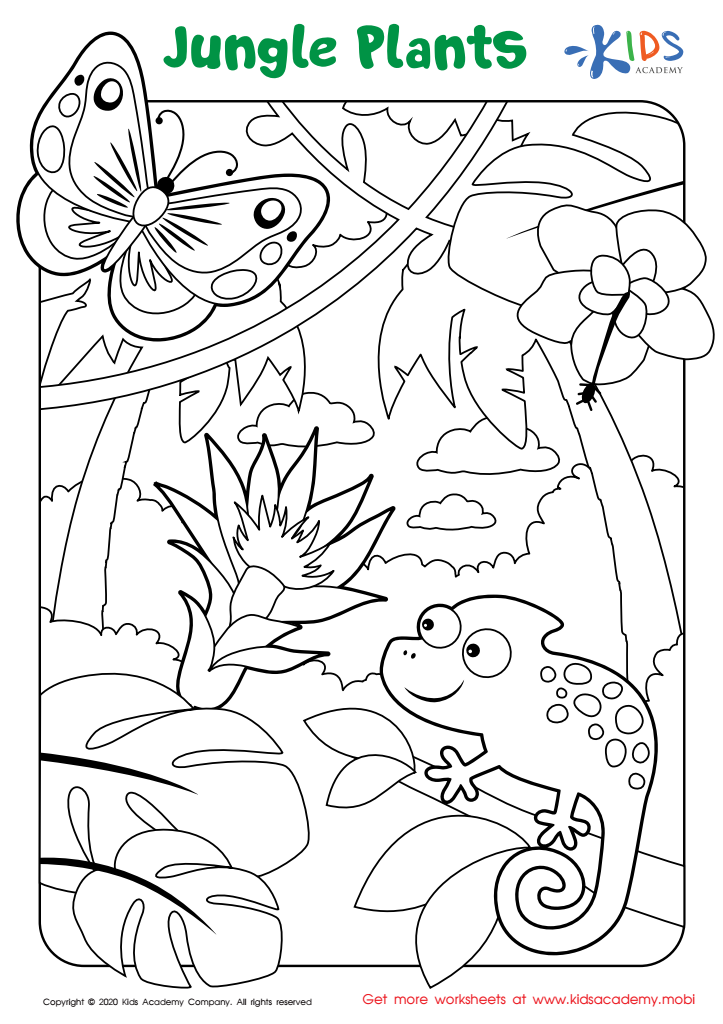Plant identification Science Worksheets for Ages 4-6
5 filtered results
-
From - To
Introduce young learners to the fascinating world of plants with our Plant Identification Science Worksheets designed specifically for ages 4-6! These engaging and colorful resources help children explore different types of plants, understand their parts, and learn to recognize common species. Through interactive activities and hands-on exercises, kids will develop essential observation skills and a love for nature. Our worksheets promote critical thinking and creativity, making science fun and accessible for early learners. Perfect for home or classroom use, these worksheets will inspire curiosity and encourage outdoor exploration, fostering a lifelong appreciation for the environment. Join us on this educational adventure today!


Types of Flowering Plants Worksheet


Plant Fun Worksheet


Thorns and Spikes Worksheet


What Do Plants Need to Grow Worksheet


Jungle Plants Worksheet
Plant identification science is an essential area for parents and teachers to focus on for children aged 4-6. At this developmental stage, children are naturally curious and eager to explore their environment, making it an ideal time to introduce them to the wonders of plants. Engaging with plant identification helps children develop critical observational skills as they learn to notice distinctions between various species, from leaves and flowers to textures and colors.
Furthermore, understanding plants nurtures a sense of respect and appreciation for nature, fostering environmental stewardship from an early age. Children learn about the importance of biodiversity and the roles different plants play in our ecosystems, promoting a holistic understanding of nature’s interconnectedness.
Incorporating plant identification into activities can enhance sensory learning through hands-on exploration; children can touch, smell, and observe different plants, thus enhancing cognitive, language, and motor skills. Additionally, relating plant identification to stories or art projects can make learning enjoyable and memorable.
Ultimately, instilling a love for nature and foundational knowledge about plants can encourage lifelong learning and environmental awareness, affecting how children interact with the world around them as they grow. So, educating young minds about plant science lays the groundwork for thoughtful, engaged future citizens.
 Assign to My Students
Assign to My Students



















